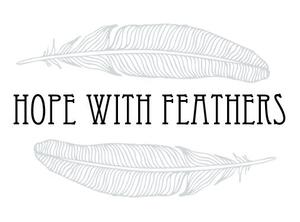“A little learning is a dangerous thing; drink of it deeply, or taste it not, for shallow thoughts intoxicate the brain, and drinking deeply sobers us again.” ~ Alexander Pope
We live in a soundbyte world.
Sometimes I feel like I’m walking in an endless Times Square, lights flashing, constant buzz, everyone crying out to be heard…marketing their ideas and wares in the way that will grab my attention fastest and longest, enticing me to stay just one more minute to take the cream…
Writers and bloggers are achingly aware of this.
We care about the spaces where we write and live and welcome friends and strangers, and we do our best to create words that matter, words that capture….and we should. It is a noble pursuit to craft and labor and honor the time you spend in our little corners. It is right that if we have a message we are passionate about sharing, we do our best to share it well.
But how does it feel to be the reader?
Among all the noise, all the headlines, all the messages coming at you today, how will you choose? How will you truly engage and really read, and really know, and take away something all your own today?
As I wander myself through library pages and blog posts, much of what I connect with is a reflection of my own soul. When a writer echoes a part of me in their words, that always draws me in…because like most people, I want to be understood, I want to be known. {I will probably never tire of hearing about myself this side of heaven, ahem} But, I’m finding now that its more important than ever to develop the art of knowing and to discern what I take in.
Beyond connecting with I want to hear, I’m also concerned with how I measure its value and digest its meaning, because if I miss this, I miss the opportunity to grow.
As I teach my children how to read, not for phonetics and fluency, but for meaning, I’m finding clarity in how I want to approach learning to read as a grown-up. I want my babes to drink deeply from the words they encounter, to measure them against the truth they know and hold. I want their own impressions to be forged deep, to be marked with ideas that are unique to them and to their experiences so that they add to the conversation that has already begun.
Because the cream, really, is that sweet spot of connection, isn’t it?
You know the place.
It’s where our knowing and understanding collides fully with the ideas expressed by another, and soon we share something together…a troupe banded by the experience of words striking deeep and becoming a part of us. Community grows this way, with words exchanged and shared and digested together.
The thing is, its hard to share what you do not know.
So how do you learn to read as a grown-up? How do you learn the art of knowing?
The Four Questions (adapted from the work of Mortimer Adler and Charles van Doren)
1. Read. Keep Reading. Read some more. Immerse yourself in the work of great minds, of those who have gone ahead of you, of those you admire, esteem and even disagree with. Just don’t stop. Carve out time to apprentice yourself to great writers and great ideas. Read actively and with intention.
2. Ask What is this About? What is the main theme or idea, what is the message? What details are important and how are they being shared?
3. Determine if it is true. Measure what is being said with the Scriptures, with what you know and believe to be true about humanity, yourself, and the world that is being shared. Dig in to the details and don’t be afraid to disagree. {Conversely, don’t be afraid to have your opinions and thinking challenged and changed}
4. Decide if what you have read is significant. Why is it important to you? Why is it important to others? If you find it meaningful, Share it. Add to the conversation. Respond.
Friends, don’t won’t waste your reading. Engage it. And engage the communities you are a part of.

